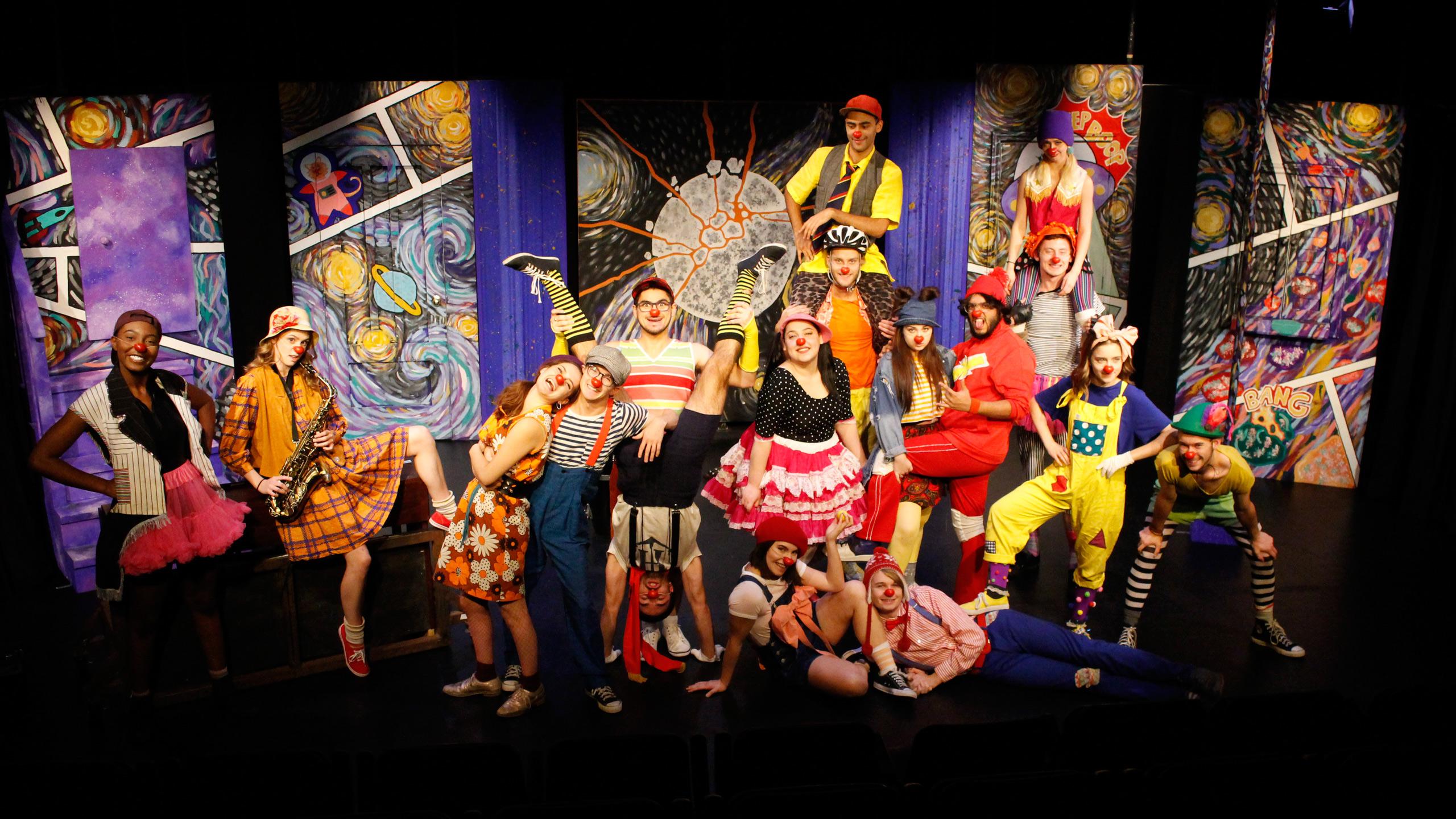By Xavier Eeswaran
Despite being a comedic performance, the Ryerson School of Performance’s annual “Clown” show is no joke to all those involved.
The school wrapped up their 10th annual performance on Oct. 27. “Clown” is a yearly production that showcases the work of director Leah Cherniak’s third-year acting class. This year’s show starred 17 clowns who performed individual routines they had developed themselves. The show is a culmination of six weeks of clown-related study in Cherniak’s class.
The show’s been running for almost 10 years, with the first one taking place in 2009. In its earlier years, the class would pick their favourite acts from the show and re-perform them on Gould Street for Ryerson’s student body.
In 2012, the outdoor Gould Street show was cancelled because of inclement weather conditions caused by Hurricane Sandy.
“There’s nothing quite like that laughter that brings people together the way’ Clown’ does”
“I think the clown show has always been a Ryerson favorite,” said Erik Weinhart, one of the clowns in this year’s show. “I remember seeing it in my first year and all I could think about was how desperately I wanted to do the Clown show.”
“Clown” is designed to teach actors comedic skills, but also how to improvise and manage a relationship with their audience.
“You’re always afraid before you go on stage to make a mistake—to say the wrong line, do the wrong choreography or movement,” said Weinhart. “But for “Clown” what’s really great is any mistake you can use in the show.”
During this year’s show, Weinhart said one of the clown’s faced technical difficulties on stage, with a guitar amp that decided to stop working. Instead of stopping, the clown worked the malfunction into his show.
“It was funny for the audience to see,” said Weinhart. “If the audience happens to think that something is funny, even if you had no idea that it would be funny even going into the show, you just keep doing it because that’s what they want.”
It’s the reaction “Clown” actors have been getting for years. Even in 2012, former clown Andrew Pimento told The Eyeopener that the audience laughter was unexpected, but it made the show.
“There’s nothing quite like that laughter that brings people together the way ‘Clown’ does,” he said.
“There is vulnerability in this, like being naked in front of someone for the first time”
But the show isn’t all about being funny. Sarah Gervais, another member of this year’s “Clown” production, said the show teaches versatility the same way there are different clowns. Yes, the students learn to be sad clowns too.
“That can form a lot of what we do outside of clown performances,” said Gervais.
On top of guiding performers’ future interests in different types of theatre, behind the scenes, “Clown” teaches a whole array of skills created due to the project’s tight window to create a simple structure.
“The show really enforces teamwork,” said Mitchell Ayres, last year’s stunt coordinator. He said producing the show has to come together in a very short time frame, with set designers, actors and promotional teams having to coordinate efforts.
Cherniak, the show’s director, has had a serious career as well. Besides directing the show as a visiting lecture in the school of perfomance, she co-founded Common Boots Theatre and was a resident director at Soulpepper Theatre, a renowned and prestigious not-for-profit Toronto theatre.
Despite how stressful it may seem, the students are reminded that at the end of the day, the show’s about genuinely having fun and learning not to take themselves too seriously. That’s not an easy thing to do for actors usually trained to be specific and controlled in their work.
“The first time you put on the [clown] nose and stand in front of people [is the hardest part],” said Pimento in 2012. “There is vulnerability in this, like being naked in front of someone for the first time.”
“Clown” is one of the performance school’s more highly coveted productions, and one of its most popular. In 2014, tickets for the show sold out.
When Gervais watched last year’s performance, she knew it’s what she wanted to do. She said she was happy she finally got her chance to clown around this year.












Leave a Reply